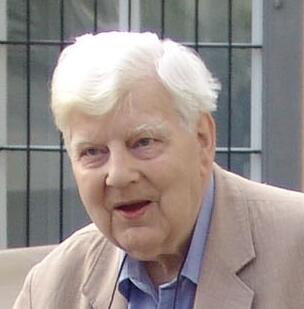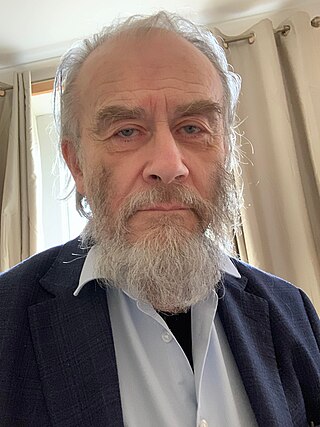Related Research Articles

Jurisprudence is the philosophy and theory of law. It is concerned primarily with what the law is and what it ought to be. That includes questions of how persons and social relations are understood in legal terms, and of the values in and of law. Work that is counted as jurisprudence is mostly philosophical, but it includes work that also belongs to other disciplines, such as sociology, history, politics and economics.

Philosophy of law is a branch of philosophy that examines the nature of law and law's relationship to other systems of norms, especially ethics and political philosophy. It asks questions like "What is law?", "What are the criteria for legal validity?", and "What is the relationship between law and morality?" Philosophy of law and jurisprudence are often used interchangeably, though jurisprudence sometimes encompasses forms of reasoning that fit into economics or sociology.

Roger Bacon, also known by the scholastic accolade Doctor Mirabilis, was a medieval English philosopher and Franciscan friar who placed considerable emphasis on the study of nature through empiricism. In the early modern era, he was regarded as a wizard and particularly famed for the story of his mechanical or necromantic brazen head. He is sometimes credited as one of the earliest European advocates of the modern scientific method, along with his teacher Robert Grosseteste. Bacon applied the empirical method of Ibn al-Haytham (Alhazen) to observations in texts attributed to Aristotle. Bacon discovered the importance of empirical testing when the results he obtained were different from those that would have been predicted by Aristotle.

John Henry McDowell, FBA is a South African philosopher, formerly a fellow of University College, Oxford, and now university professor at the University of Pittsburgh. Although he has written on metaphysics, epistemology, ancient philosophy, nature, and meta-ethics, McDowell's most influential work has been in the philosophy of mind and philosophy of language. McDowell was one of three recipients of the 2010 Andrew W. Mellon Foundation's Distinguished Achievement Award, and is a Fellow of both the American Academy of Arts & Sciences and the British Academy.
Legal positivism is a school of thought of analytical jurisprudence developed largely by legal philosophers during the 18th and 19th centuries, such as Jeremy Bentham and John Austin. While Bentham and Austin developed legal positivist theory, empiricism provided the theoretical basis for such developments to occur. The most prominent legal positivist writer in English has been H. L. A. Hart.
Legal realism is a naturalistic approach to law; it is the view that jurisprudence should emulate the methods of natural science, that is, it should rely on empirical evidence. Hypotheses must be tested against observations of the world.

Sir Anthony John Patrick Kenny is a British philosopher whose interests lie in the philosophy of mind, ancient and scholastic philosophy, the philosophy of religion, and the philosophy of Wittgenstein of whose literary estate he is an executor. With Peter Geach, he has made a significant contribution to analytical Thomism, a movement whose aim is to present the thought of St. Thomas Aquinas in the style of analytic philosophy. He is a former president of the British Academy and the Royal Institute of Philosophy.

Sir Michael Anthony Eardley Dummett was an English academic described as "among the most significant British philosophers of the last century and a leading campaigner for racial tolerance and equality." He was, until 1992, Wykeham Professor of Logic at the University of Oxford. He wrote on the history of analytic philosophy, notably as an interpreter of Frege, and made original contributions particularly in the philosophies of mathematics, logic, language and metaphysics.

Herbert Lionel Adolphus Hart was an English legal philosopher. He was the Professor of Jurisprudence at Oxford University and the Principal of Brasenose College, Oxford. His most famous work is The Concept of Law, which has been hailed as "the most important work of legal philosophy written in the twentieth century". He is considered one of the world's foremost legal philosophers in the twentieth century.

Patricia Smith Churchland is a Canadian-American analytic philosopher noted for her contributions to neurophilosophy and the philosophy of mind. She is UC President's Professor of Philosophy Emerita at the University of California, San Diego (UCSD), where she has taught since 1984. She has also held an adjunct professorship at the Salk Institute for Biological Studies since 1989. She is a member of the Board of Trustees Moscow Center for Consciousness Studies of Philosophy Department, Moscow State University. In 2015, she was elected a Fellow of the American Academy of Arts & Sciences. Educated at the University of British Columbia, the University of Pittsburgh, and Somerville College, Oxford, she taught philosophy at the University of Manitoba from 1969 to 1984 and is married to the philosopher Paul Churchland. Larissa MacFarquhar, writing for The New Yorker, observed of the philosophical couple that: "Their work is so similar that they are sometimes discussed, in journals and books, as one person."
Friedrich Kratochwil is a German university professor who studied at the University of Munich before migrating to the United States, then subsequently returning to Europe. He received a PhD from Princeton University.
David Charles Stove was an Australian philosopher whose writings often challenged prevailing academic orthodoxy. He was known for his critiques of postmodernism, feminism, and multiculturalism.
Pure Theory of Law is a book by jurist and legal theorist Hans Kelsen, first published in German in 1934 as Reine Rechtslehre, and in 1960 in a much revised and expanded edition. The latter was translated into English in 1967 as Pure Theory of Law.

Joseph Raz was an Israeli legal, moral and political philosopher. He was an advocate of legal positivism and is known for his conception of perfectionist liberalism. Raz spent most of his career as a professor of philosophy of law at Balliol College, Oxford, and was latterly a part-time professor of law at Columbia University Law School and a part-time professor at King's College London. He received the Tang Prize in Rule of Law in 2018.

Stephen Richard Lyster Clark is an English philosopher and professor emeritus of philosophy at the University of Liverpool. Clark specialises in the philosophy of religion and animal rights, writing from a philosophical position that might broadly be described as Christian Platonist. He is the author of twenty books, including The Moral Status of Animals (1977), The Nature of the Beast (1982), Animals and Their Moral Standing (1997), G.K. Chesterton (2006), Philosophical Futures (2011), and Ancient Mediterranean Philosophy (2012), as well as 77 scholarly articles, and chapters in another 109 books. He is a former editor-in-chief of the Journal of Applied Philosophy (1990–2001).
Roger B. M. Cotterrell is the Anniversary Professor of Legal Theory at Queen Mary University of London and was made a fellow of the British Academy in 2005. Previously he was the Acting Head of the Department of Law (1989–90), Head of the Department of Law (1990-1), Professor of Legal Theory (1990–2005) and the Dean of the Faculty of Laws (1993-6) at Queen Mary and Westfield College, University of London.
Legal cultures are described as being temporary outcomes of interactions and occur pursuant to a challenge and response paradigm. Analyses of core legal paradigms shape the characteristics of individual and distinctive legal cultures. "Comparative legal cultures are examined by a field of scholarship, which is situated at the line bordering comparative law and historical jurisprudence."

Barry Stroud was a Canadian philosopher and professor at the University of California, Berkeley. Known especially for his work on philosophical skepticism, he wrote about David Hume, Ludwig Wittgenstein, the metaphysics of color, and many other topics.
John Andrew Foster, known as John Foster, was a British philosopher and tutorial Fellow of Brasenose College, Oxford, from 1966 to 2005. He authored several books, including The Case for Idealism (1982) and A World for Us: The Case for Phenomenalistic Idealism (2008). His A. J. Ayer (1985) was described by Anthony Quinton as "the only serious monograph" about Ayer's philosophy".

Alan Richard White was an analytic philosopher who worked mainly in epistemology, the philosophy of mind, and, latterly, legal philosophy. Peter Hacker notes that he was "the most skillful developer of Rylean ... ideas in philosophical psychology" and that "if anyone surpassed Austin in subtlety and refinement in the discrimination of grammatical differences, it was White." Richard Swinburne remarks that "during the heyday of 'ordinary language philosophy' no tongue practised it better."
References
- ↑ THORNTON, MARK (October 1993). "Norm and Nature: The Movements of Legal Thought". Philosophical Books. 34 (4): 244–246. doi:10.1111/j.1468-0149.1993.tb02381.x.
- ↑ Schauer, Frederick (September 1994). "Roger Shiner Norm and Nature: The Movements of Legal Thought. Oxford: Clarendon Press 1992. Pp. xiv + 348". Canadian Journal of Philosophy. 24 (3): 495–509. doi:10.1080/00455091.1994.10717381. ISSN 0045-5091. S2CID 221961014.
- ↑ Ross, Stephanie (17 June 2022). "Review of Reading David Hume's "Of the Standard of Taste"". NDPR. ISSN 1538-1617.
- ↑ "Philosophy In Review".